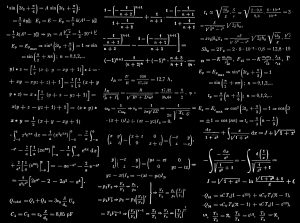Choosing the Right Abacus Classes for Your Child

In today’s competitive academic landscape, parents are constantly seeking ways to give their children an edge in mathematics and cognitive development. One increasingly popular method is enrolling children in abacus classes. This ancient calculating tool has found new life as a powerful educational instrument. This article will explore the benefits of learning abacus, its uses, and how to choose the right abacus class for your child.
Understanding Abacus for Kids
The abacus is a calculating tool that has been used for centuries across various cultures. In recent years, it has gained popularity as an educational tool, with abacus for kids programs springing up worldwide. These programs aim to harness the abacus’s potential to enhance mathematical skills and cognitive abilities in children.
How Abacus Training Works
Abacus training typically involves teaching children to visualize the abacus in their minds and perform calculations mentally. This process, known as mental abacus, helps children develop strong visualization skills and enhances their ability to perform complex calculations quickly and accurately.
Uses of Abacus
The uses of abacus extend far beyond simple calculation. Here are some key applications:
-
Basic Arithmetic: The abacus is excellent for teaching addition, subtraction, multiplication, and division.
-
Mental Math: As children progress, they learn to visualize the abacus, enabling them to perform calculations mentally.
-
Decimal System Understanding: The abacus helps children grasp the concept of place value in the decimal system.
-
Problem-Solving Skills: Manipulating the abacus encourages logical thinking and problem-solving.
-
Concentration and Focus: Regular abacus practice can improve a child’s ability to concentrate for extended periods.
Benefits of Learning Abacus
Research has shown numerous benefits of learning abacus for children:
-
Enhanced Numerical Fluency: A study published in the journal “Frontiers in Psychology” found that children who received abacus training showed significant improvements in numerical fluency compared to those who did not.
-
Improved Working Memory: Research in the “Journal of Experimental Child Psychology” demonstrated that abacus training can enhance visual-spatial working memory in children.
-
Faster Mental Calculation: A study in the “Research in Developmental Disabilities” journal revealed that children trained in mental abacus could perform complex calculations faster than their peers.
-
Better Concentration: Abacus training has been shown to improve focus and attention span in children, as reported in a study published in “PLOS ONE”.
-
Enhanced Cognitive Abilities: Research in the “Developmental Science” journal found that abacus training can lead to improvements in general cognitive abilities, including non-numerical tasks.
-
Boosted Confidence: As children master abacus skills, they often experience increased confidence in their mathematical abilities, which can positively impact their overall academic performance.
Choosing the Right Abacus Class
When selecting an abacus class for your child, consider the following factors:
-
Curriculum: Look for a program that offers a structured curriculum tailored to your child’s age and skill level. The curriculum should progress from basic concepts to more advanced techniques.
-
Qualified Instructors: Ensure that the instructors are certified and experienced in teaching abacus to children.
-
Class Size: Smaller class sizes allow for more individual attention, which can be crucial for younger children or those new to abacus.
-
Teaching Methods: Look for programs that use a variety of teaching methods, including hands-on practice, mental exercises, and games to keep children engaged.
-
Progress Tracking: Choose a program that regularly assesses and tracks your child’s progress, providing feedback to both you and your child.
-
Flexibility: Consider whether the class schedule fits your family’s routine and whether make-up classes are available if needed.
-
Reviews and Recommendations: Look for reviews from other parents or ask for recommendations from your child’s school or other trusted sources.
Implementing Abacus Learning at Home
To maximize the benefits of abacus training, consider these tips for supporting your child’s learning at home:
-
Practice Regularly: Encourage your child to practice abacus skills for short periods daily rather than long sessions less frequently.
-
Use Online Resources: Many websites and apps offer abacus practice exercises and games that can supplement formal classes.
-
Incorporate Abacus into Daily Life: Use abacus concepts to solve everyday math problems, such as calculating grocery bills or measuring ingredients for cooking.
-
Celebrate Progress: Recognize and celebrate your child’s improvements, no matter how small, to maintain motivation and enthusiasm.
Case Studies and Success Stories
Numerous case studies have demonstrated the positive impact of abacus training on children’s mathematical abilities and overall cognitive development:
-
A study conducted in India, published in the “International Journal of Science and Research,” followed a group of students aged 8-12 who underwent abacus training for six months. The results showed significant improvements in their mathematical abilities, particularly in mental arithmetic and problem-solving skills.
-
Research from Malaysia, published in the “Procedia – Social and Behavioral Sciences” journal, found that students who received abacus training showed improved concentration and memory skills compared to their peers who did not receive such training.
-
A case study from Japan, where abacus education has been widely implemented, reported in the “Educational Studies in Mathematics” journal, showed that students with abacus training demonstrated superior performance in mental calculation tasks and exhibited better working memory capacity.
Potential Challenges and Considerations
While abacus training offers numerous benefits, it’s important to consider potential challenges:
-
Time Commitment: Consistent practice is crucial for progress, which may be challenging for children with busy schedules.
-
Individual Learning Pace: Some children may progress faster than others, which can be frustrating for those who need more time to grasp concepts.
-
Balancing with Other Activities: Ensure that abacus training doesn’t overshadow other important aspects of your child’s development, such as physical activity or creative pursuits.
-
Cost: Quality abacus programs may be an additional expense for families, so consider the long-term value and your budget.
Conclusion
Choosing the right abacus class for your child can provide a strong foundation for mathematical success and cognitive development. The benefits of learning abacus extend beyond numerical skills, enhancing memory, concentration, and problem-solving abilities. By carefully selecting a program that aligns with your child’s needs and supporting their learning at home, you can help unlock their full potential in mathematics and beyond.
As you consider abacus training for your child, remember that every child is unique, and what works best may vary. Be patient, supportive, and open to adjusting your approach as needed. With the right guidance and consistent practice, abacus learning can be a rewarding and enriching experience for your child, setting them on a path to academic success and lifelong learning.
Ready to see the difference SIP Abacus can make? Book a Free Trial Class today and watch your child’s skills soar!



